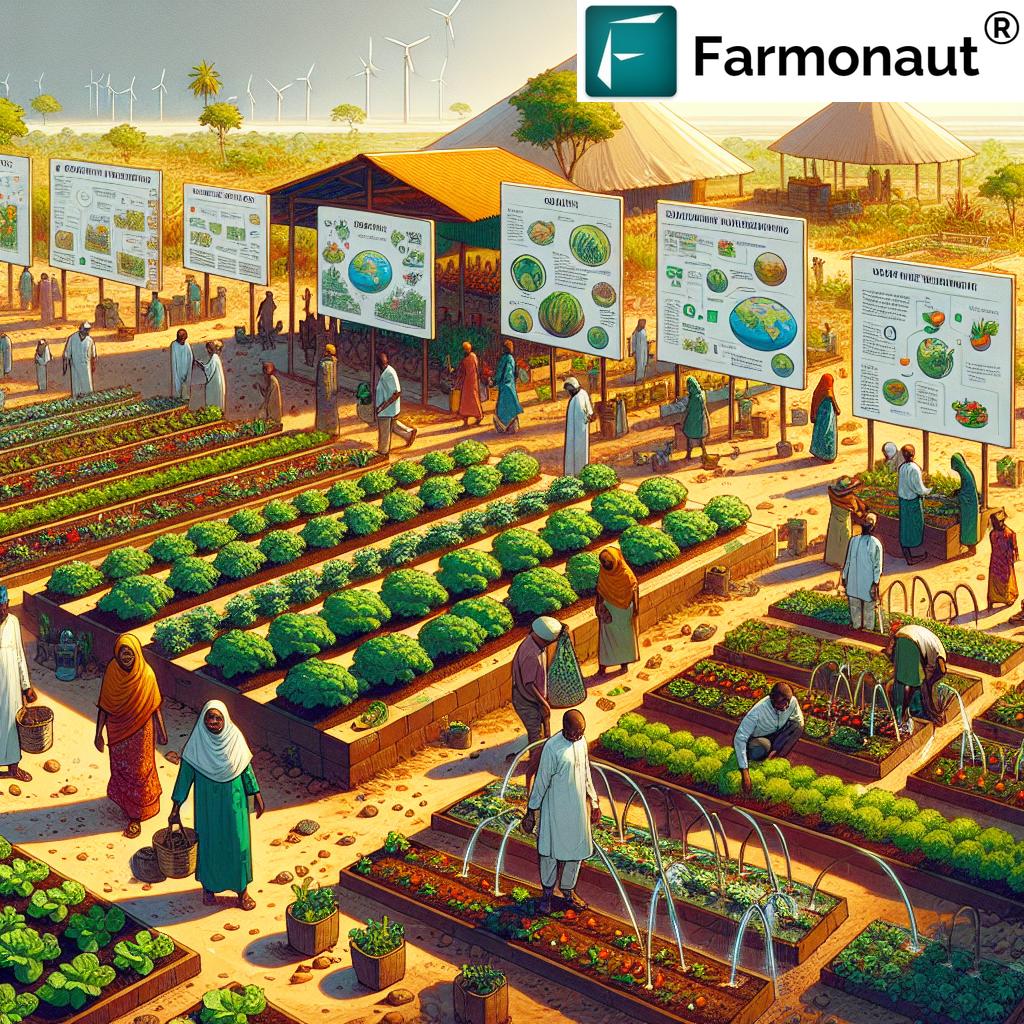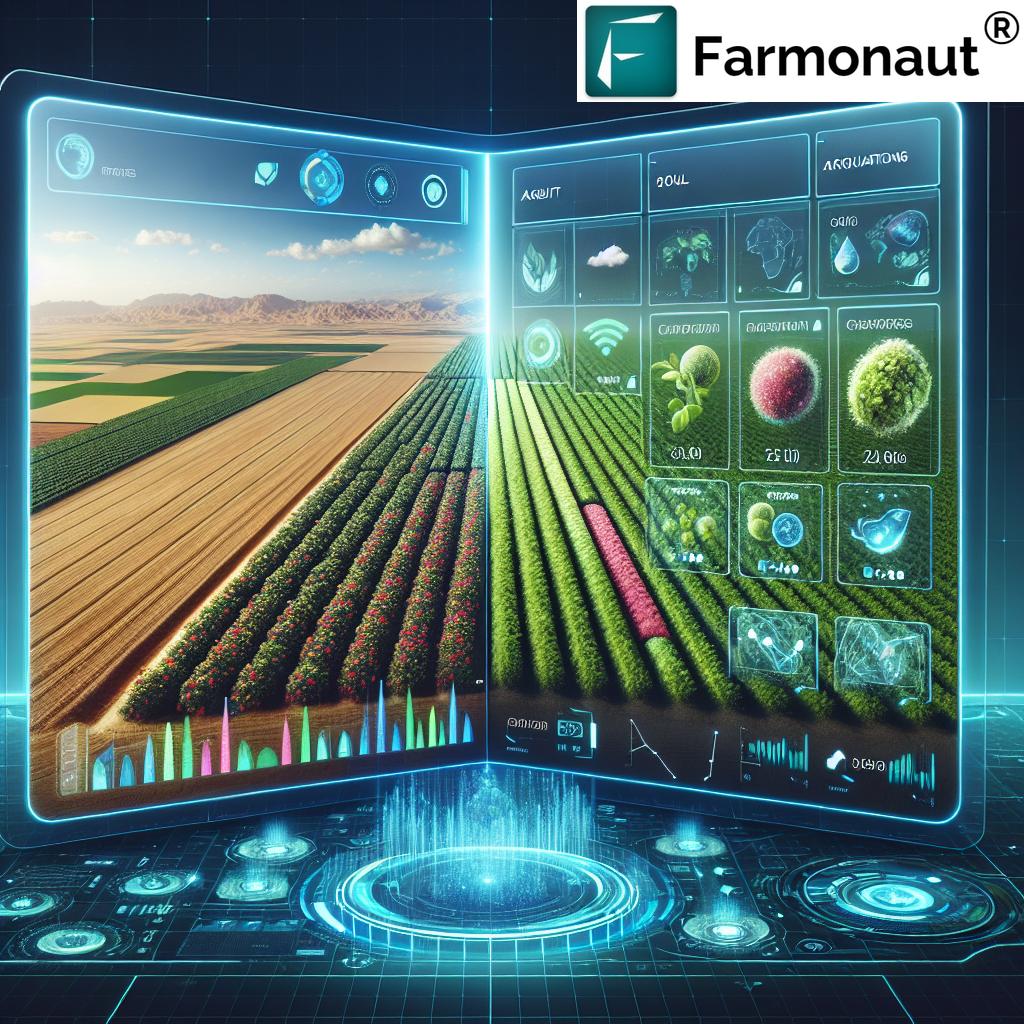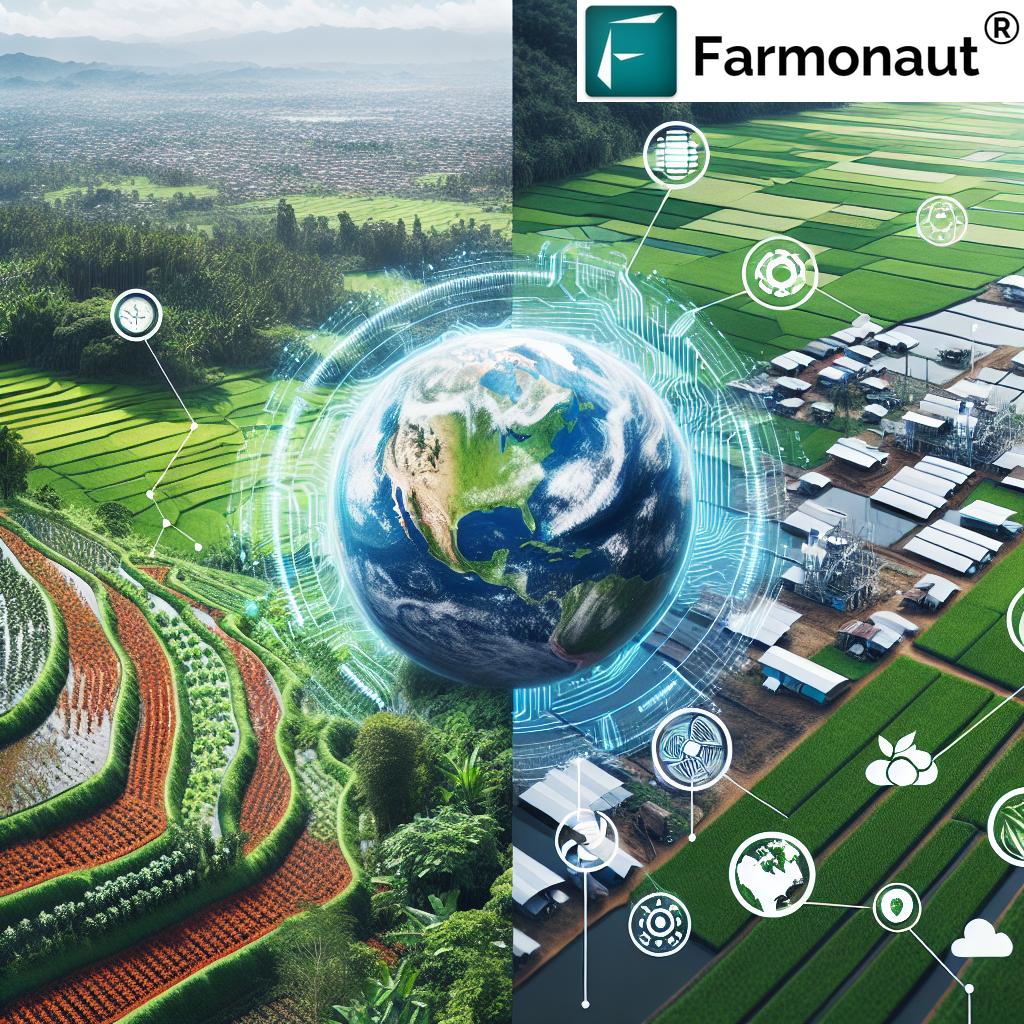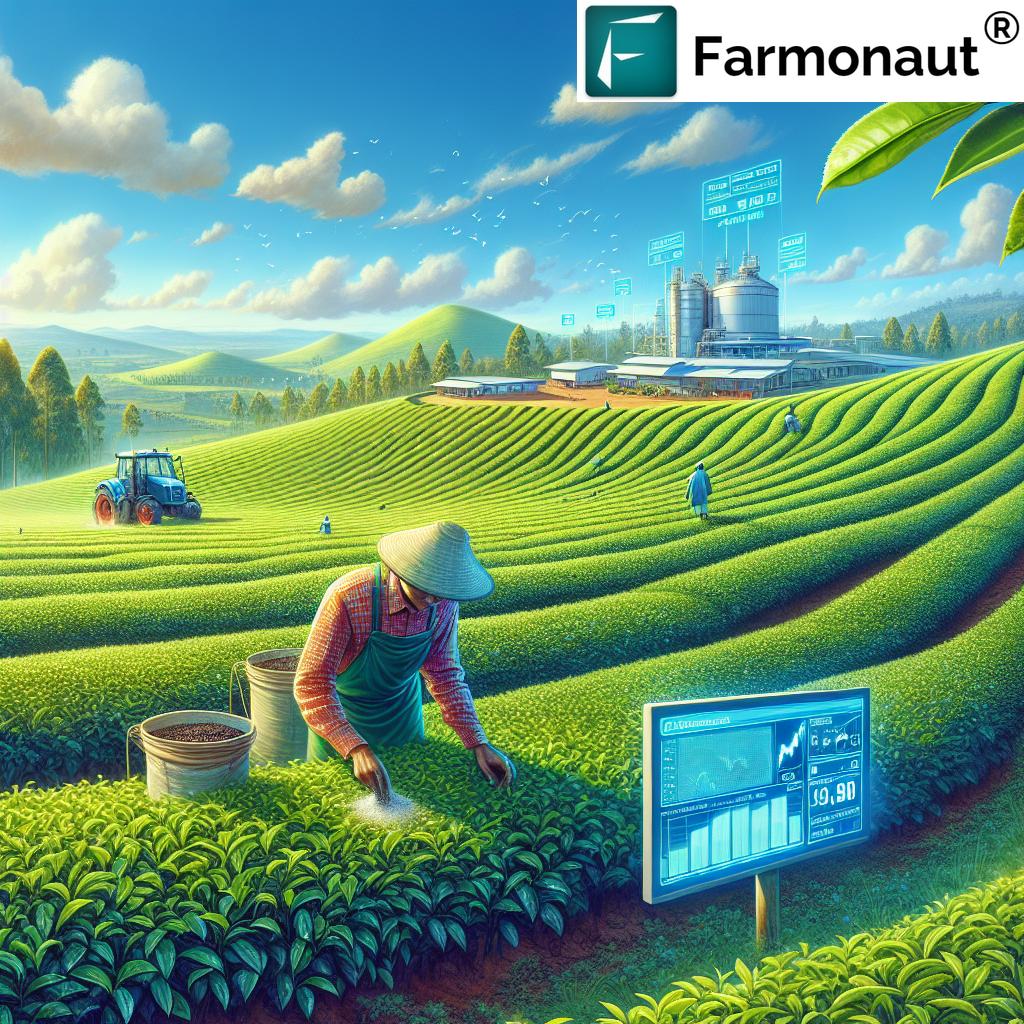Cleantech Marketing for Sustainable Agriculture: Nigeria’s #1 Secret
“Over 60% of Nigerian farmers adopting cleantech solutions report a 25% increase in crop yields within two years.”
Introduction: Nigeria’s Cleantech Advantage
As we stand at the crossroads of agricultural transformation in Nigeria, one secret is emerging as the clear frontrunner in sustainable farming practices: cleantech. With pressure increasing on farmers, communities, and stakeholders to meet rising food demand while reducing environmental impact, cleantech in agriculture has become Nigeria’s most effective solution for this dual challenge.
Cleantech innovations—ranging from precision farming solutions to renewable energy systems—are steering Nigerian agriculture down a more resilient, profitable, and environmentally responsible path. However, to fully unlock the potential of these technologies, effective marketing strategies and trusted, accessible solutions are as crucial as the innovations themselves.
Understanding Cleantech in Agriculture
Cleantech, short for “clean technology,” refers to solutions that help reduce negative environmental impact and drive sustainability across multiple industries. In agriculture, cleantech encompasses a wide range of innovations and strategies designed to improve efficiency, lower resource consumption, and minimize the ecological footprint of farming practices.
Let’s break down the main categories of cleantech in Nigeria’s agricultural context:
- Precision Farming Solutions: Uses data-driven insights, remote sensing, and AI to help farmers optimize inputs and maximize yields. These include variable-rate fertilization, targeted irrigation, and crop health monitoring systems.
- Renewable Energy in Farming: Integration of solar, wind, and biogas to power farm operations, reduce reliance on diesel, and cut carbon emissions.
- Water Conservation Technologies: Innovations such as drip irrigation, soil moisture sensors, and automated irrigation scheduling that preserve water while maintaining or increasing crop yields.
- Eco-friendly Pest Management: Solutions employing biological controls, pheromone traps, and predictive analytics to minimize chemical pesticides and their impact on the environment.
- Sustainable Cold Storage Systems: For example, solar-powered cold storage to reduce post-harvest losses and prevent food wastage.
By integrating these technologies into their operations, Nigerian farmers can overcome long-standing challenges, improve profitability, and contribute to a healthier environment.
Did You Know?
Adoption of sustainable technology is not just for large agribusinesses. Emerging platforms like Farmonaut make advanced precision agriculture affordable and accessible through web and mobile apps. These tools level the playing field for even smallholder farmers by offering real-time crop health monitoring, AI-driven advisories, and resource management.
The Importance of Marketing Cleantech Solutions
Even with proven benefits, cleantech’s full potential in Nigerian agriculture can only be realized if we address key barriers to adoption. Many farmers remain cautious due to factors like upfront investment costs, unfamiliarity with technology, or uncertainty about tangible results.
This is where marketing cleantech solutions becomes critical—not in the traditional sense of pushing products, but by building trust, educating stakeholders, and making innovation accessible. Here’s how:
- Educating Stakeholders: Turning technical jargon into clear, actionable content that resonates with farmers’ actual challenges, using local languages and relatable examples.
- Building Trust: Sharing testimonials, third-party verification, and transparent data on yields, cost savings, and environmental impact to reassure farmers and decision-makers.
- Facilitating Adoption: Reducing friction through training programs, demo sessions, user-friendly apps, and dedicated support to smooth the transition to new technology.
Platforms such as Farmonaut exemplify this approach by providing in-app guidance, AI-driven advisories, and multilingual support—making agricultural technology adoption accessible and actionable.
Key Strategies for Marketing Cleantech in Agriculture
Let’s explore the core strategies that every cleantech company and advocate must adopt to promote sustainable agriculture and empower Nigerian farmers:
1. Develop a Clear Value Proposition
We must demonstrate, in practical terms, how each cleantech innovation addresses specific pain points facing farmers—be it increasing crop yields, saving costs, or reducing environmental impact. For example, Farmonaut deploys real-time satellite data to pinpoint areas of crop stress, allowing for timely interventions and reduced input waste.
2. Leverage Educational Content to Build Awareness
Creating educational content is vital for building understanding and trust. We should use various formats, including:
- Blog Posts and Guides: Break down how precision farming tools or water conservation technologies improve outcomes for Nigerian farmers.
- Videos and Webinars: Live demonstrations of using a mobile app to track crop health or optimize irrigation.
- Infographics: Visually showing environmental impact reduction and increased efficiency compared to traditional practices.
3. Utilize Data-Driven Marketing
By leveraging analytics tools, we can better understand the behavior, needs, and preferences of our target audience. Collecting metrics on the effectiveness of campaigns helps refine messaging and resource allocation. Integrating analytics with farm management apps enables personalized communication, timely alerts, and tailored training for each user segment.
4. Engage Through Multiple Channels
A multi-channel strategy ensures we reach farmers where they are—both online and offline. This includes:
- Social media campaigns in English and major Nigerian languages.
- SMS notifications and WhatsApp groups for timely technical support.
- Participation in agricultural industry events, trade fairs, and local cooperatives.
- Strategic partnerships with rural radio stations for knowledge transfer.
5. Highlight Success Stories and Testimonials
Showcasing the real-world effectiveness of cleantech is powerful. Sharing case studies in sustainable agriculture, along with testimonials from early adopters, helps potential customers envision how these solutions can transform their own farms.
- Example: Sharing results from areas in Nigeria where satellite-based precision irrigation led to dramatic water savings and improved yield stability.
6. Offer Support and Training to Facilitate Adoption
Providing robust training and ongoing resources gives farmers the confidence to try and stick with new technologies. This includes step-by-step onboarding, local-language manuals, and community demo days.
Farmonaut, for instance, integrates AI-based advisory systems that deliver real-time crop management insights directly to farmers’ smartphones, removing barriers to adoption.
“Precision farming in Nigeria has reduced water usage by up to 30%, significantly supporting sustainable agriculture practices.”
Farmonaut’s Role in Nigeria’s Cleantech Revolution
Modern agriculture requires actionable intelligence, rapid decision-making, and seamless access to sustainable solutions. This is where Farmonaut excels, by merging advanced technologies with affordability, accessibility, and measurable benefits for both smallholder and large-scale Nigerian farmers.
How Farmonaut Drives Sustainable Farming Practices
- Satellite-Based Crop Health Monitoring: Farmonaut leverages satellite imagery to provide real-time insights into crop health, vegetation trends, and soil moisture. This helps farmers reduce resource wastage and maximize yields—key tenets of both economic growth and environmental stewardship.
- AI-Powered Decision Support: Through its Jeevn AI Advisory System, the platform generates customized farm management advice, weather updates, and predictive analytics for pests and diseases—improving efficiency and reducing ecological footprints.
- Blockchain Traceability: By integrating blockchain traceability, Farmonaut enables transparent, tamper-resistant record-keeping across the supply chain. For Nigerian agricultural exports, this means greater trust with buyers and premium market opportunities.
- Fleet and Resource Management: With fleet optimization tools, agribusinesses and cooperatives gain oversight on logistics, improve safety, and cut costs.
- Environmental Monitoring: The platform’s carbon footprinting tools provide emissions tracking and sustainability metrics, making it easier for organizations to comply with emerging regulations and global best practices.
- Accessible APIs: Developers and researchers can access Farmonaut’s satellite and weather data via API, and integrate these insights directly into their own apps or analytics dashboards. Full developer documentation ensures seamless onboarding.
Best of all, Farmonaut’s subscription-based plans lower the entry barrier, offering tiered access for individual farmers, agribusinesses, and government agencies.
Comparing Cleantech Solutions vs. Traditional Farming in Nigeria
To highlight the clear advantages of cleantech adoption in Nigerian agriculture, let’s consider the data-driven impacts across key metrics:
| Farming Practice | Estimated Crop Yield Increase (%) | Estimated Cost Savings (%) | Reduction in Environmental Impact (%) | Adoption Rate in Nigeria (%) |
|---|---|---|---|---|
| Traditional Farming | 0 – 5 | 0 – 4 | Baseline (0) | ~85 |
| Precision Irrigation | 20 – 30 | 15 – 25 | 25 – 35 | 10 – 15 |
| Satellite Monitoring | 12 – 25 | 10 – 18 | 18 – 30 | 7 – 12 |
| Drone Field Analysis | 15 – 28 | 12 – 20 | 20 – 32 | 3 – 7 |
Key Insights:
- Cleantech in agriculture drives significant improvements in crop yields and cost efficiency, while supporting water conservation and emission reduction.
- Although overall adoption rates are still growing, the impact is markedly positive among early adopters, especially with support from user-friendly tools like Farmonaut’s data-driven platform.
Overcoming Challenges in Cleantech Marketing
Despite compelling evidence, several challenges persist in promoting cleantech adoption throughout Nigeria. Our strategies must be tailored to address these, such as:
-
Complexity of Technology:
- Break down technical concepts into everyday terms.
- Show visual guidance within the app, and offer community-based moderators for in-person support.
-
Cost Concerns:
- Emphasize the long-term savings and higher returns from investing in precision tools and sustainable solutions.
- Point out how carbon footprinting and crop loan and insurance services from Farmonaut reduce both operating costs and financial risk for individual farmers and cooperatives.
-
Cultural Resistance:
- Work with trusted local influencers and lead community demo sessions.
- Ensure cleantech messaging aligns with local farming values—emphasizing stewardship and resilience rather than just novelty.
Key Cleantech Tools for Nigeria’s Agricultural Sustainability
True transformation depends on integrating multiple cleantech systems. Here are some additional tools and solutions we recommend for the Nigerian market:
-
Large-Scale Farm Management Apps:
Platforms like Farmonaut’s Agro Admin App enable managers to oversee vast plantations, schedule field tasks, and analyze data across multiple geographies, helping large Nigerian agribusinesses achieve sustainability at scale. -
Real-Time Fleet Management:
Efficient fleet management systems optimize logistics and asset utilization, reducing wastage and emissions. -
API and Integration Options:
Research institutes, consulting firms, and NGOs supporting Nigeria’s farmers can plug Farmonaut’s API into their own dashboards, unlocking rapid integration of up-to-date satellite intelligence. -
Crop Advisory and Environmental Monitoring:
Advanced crop and forest advisory systems draw on AI and satellite data to detect risks early and recommend sustainable interventions—key for adapting to Nigeria’s changing climate.
Conclusion: Driving the Future of Sustainable Agriculture in Nigeria
The integration of cleantech in agriculture isn’t just an option for Nigerian farmers—it’s an inevitable and necessary evolution. With Nigeria’s burgeoning population and increasing agricultural exports, precision farming solutions, renewable energy in farming, water conservation technologies, and eco-friendly pest management hold the key to a stable, prosperous, and environmentally responsible food system.
The real secret lies in making these innovations accessible, trusted, and actionable for every farmer. By investing in clear communication, robust training, and user-focused technology platforms like Farmonaut, we can accelerate the transition to sustainable farming practices, drive profitability, and promote nationwide food security—while ensuring a positive environmental impact for generations to come.
FAQ: Cleantech in Agriculture in Nigeria
Q1: What is cleantech in agriculture?
Cleantech in agriculture refers to solutions that use technology to reduce environmental impact, improve efficiency, and make farming more sustainable. These include precision farming tools, renewable energy systems, water conservation technologies, and eco-friendly pest management systems.
Q2: What are the main benefits of adopting cleantech for Nigerian farmers?
The main benefits are:
- Increased crop yields through data-driven decision-making
- Cost reduction from optimized resource use (fertilizer, water, pesticides)
- Improved environmental sustainability, including reduced water usage and emissions
- Market advantage through compliance and certified traceability
Q3: How does Farmonaut help Nigerian farmers with sustainability?
Farmonaut provides satellite-based monitoring, AI-driven advisories, resource and fleet management, blockchain traceability, and carbon footprint analysis. These technologies help farmers boost productivity, lower input costs, and comply with sustainability standards—all through a mobile-friendly, accessible platform.
Q4: How much does it cost to use Farmonaut’s solutions?
Farmonaut offers flexible, subscription-based pricing. Plans are available for individual farmers, agribusinesses, and government users, with pricing based on the area monitored and the frequency of data updates. See the subscription table above for details.
Q5: Can I integrate Farmonaut’s data into my own dashboards or apps?
Yes! Farmonaut APIs allow seamless integration of satellite, weather, and farm data into other systems. Learn more about the API and check the developer documentation.
Q6: What steps should Nigerian farmers take to adopt these cleantech solutions?
- Download the Farmonaut app or visit the web platform.
- Explore the crop monitoring and advisory features to understand your current farm performance.
- Participate in training sessions and educational webinars to learn about precision farming strategies.
- Access support resources and frequently asked questions within the app.
- Scale up adoption as you see positive results in yields and sustainability metrics.


















